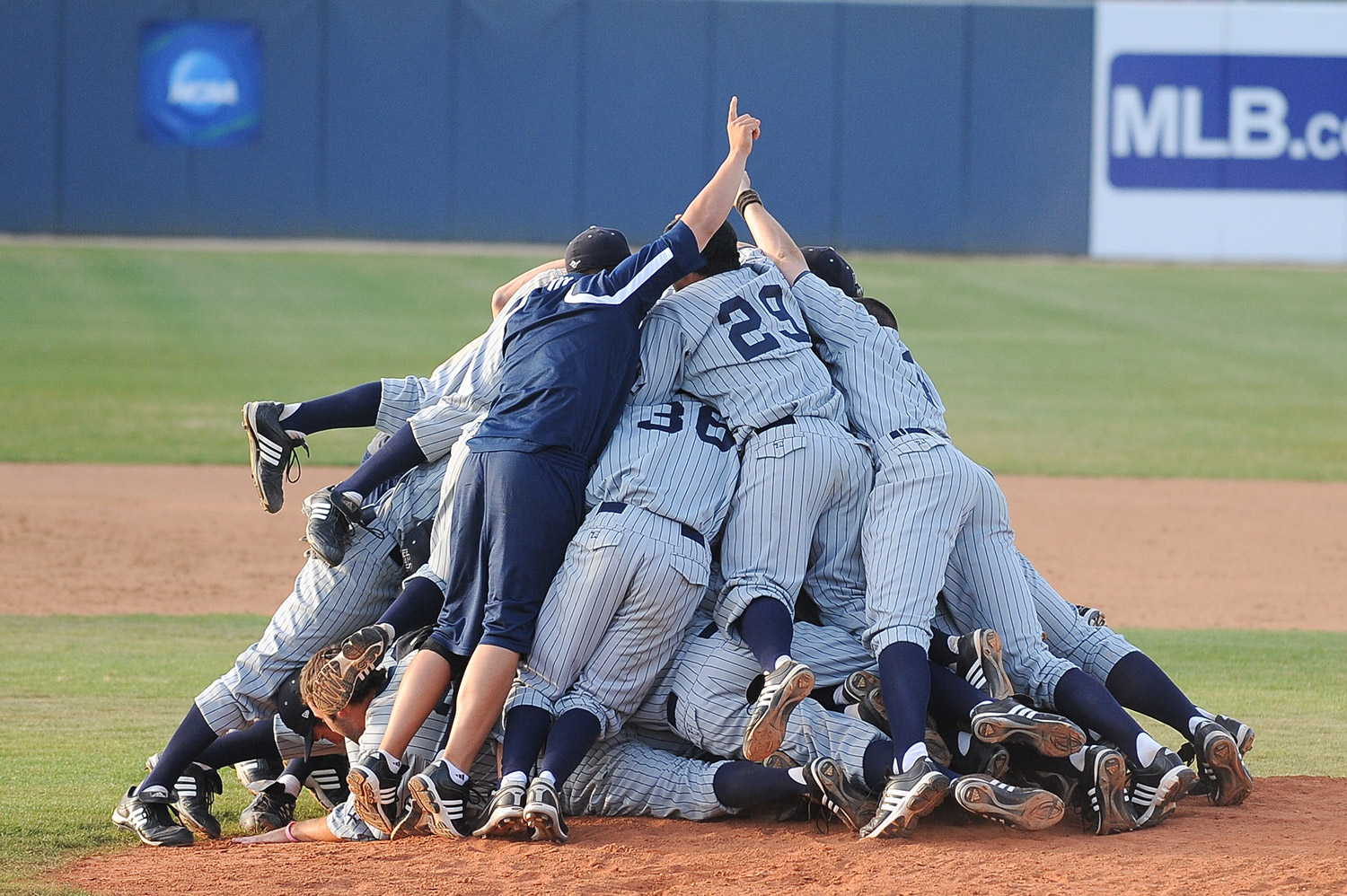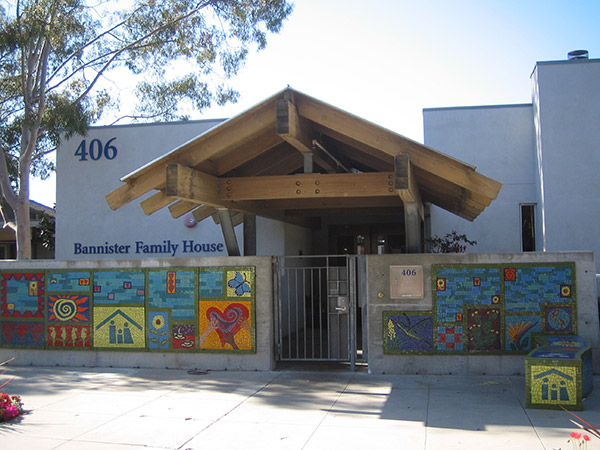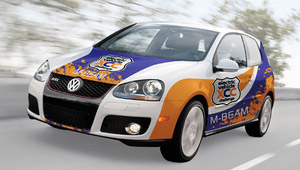
By:
- Kristin Luciani
Published Date
By:
- Kristin Luciani
Share This:

Campus Launches Philanthropic Crowdfunding Platform
What do a new ballpark, cross-country electric vehicle demonstration and “home-away-from-home” for families of hospital patients have in common? Each is raising support through Crowdsurf, UC San Diego’s new philanthropic crowdfunding initiative.
Crowdsurf provides a way for donors to directly support student and campus projects that they find compelling. Unlike other crowdfunding tools, Crowdsurf donations are processed through the UC San Diego Foundation and are tax deductible. Another unique feature is that projects receive all of the funds they raise via the platform, regardless of whether or not the campaign achieves its stated goal.
Developed in partnership with ScaleFunder, a company that hosts crowdfunding platforms specifically designed for higher education, Crowdsurf is an initiative envisioned and operated by the Alumni and Community Engagement unit in UC San Diego’s Advancement Division. It represents a collaborative venture that engages the entire university community. The program is open to students, staff and faculty who need fundraising support for innovative and compelling causes. Because Crowdsurf is a UC San Diego program, projects that use the tool have an additional advantage: support from dedicated campus staff who will provide coaching and guidance to help team leads with their fundraising strategy.
Crowdsurf is about more than raising money online though. “Our goal is to showcase the meaningful work that students and campus members are doing every day,” said Armin Afsahi, associate vice chancellor and chief alumni officer for Alumni and Community Engagement, “and to inspire our Triton community to participate in supporting these efforts.”
Following are three projects that have already found success with Crowdsurf.
Supporting a haven of hope and comfort
One of the first programs to participate in the Crowdsurf crowdfunding platform was UC San Diego Health System’s Bannister Family House, a place where out-of-town guests can stay to be close to their loved ones during extended hospital stays. The campaign exceeded its $5,540 goal, raising $5,561 for its “Adopt-A-Family” program—enough to provide 139 one-night stays at Bannister Family House.

Bannister Family House
“We were thrilled to be one of the first projects selected,” said Denise Capozzi, director of the Bannister Family House. “It was a great experience, and a unique opportunity to raise awareness and share the impact of the Bannister Family House.”
The fee to stay at the house is $40 per night, which helps offset the cost of operations. For families facing long-term hospital stays, the expenses can add up quickly. The “Adopt-A-Family” program aims to alleviate the financial burden associated with an extended hospital stay.
The Crowdsurf campaign offered donors a menu featuring different levels of giving, ranging from $25 to help stock the pantry for meals at the house, up to $680 to support a family for the average stay—17 days—at the Bannister Family House. In addition to the numbers, Capozzi and her team shared the impact of gifts by posting short videos of guests talking about what the house has meant to them.
Jana Fortune, manager at the Bannister Family House, said: “It was very gratifying to see the tally go up each week and think, wow, people really believe in what we’re doing.”
According to Capozzi and Fortune, teamwork was the essential ingredient for making their philanthropic crowdfunding experience successful. With their project lead, Brooke Truesdale, spearheading the campaign and a network of supporters who helped share the fundraiser with their networks of family and friends, the Bannister Family House was able to increase awareness and bring new donors into their community.
A matching challenge to complete Triton Ballpark
Last month, UC San Diego Athletics launched the Triton Ballpark Match Campaign on Crowdsurf. Their goal is to raise $100,000 to complete a new, state-of-the-art ballpark that will feature sunken dugouts, a permanent spectator seating bowl, press box and more. Thanks to a challenge gift of $50,000 from Jerri-Ann and Gary Jacobs, a 1979 UC San Diego graduate, all contributions to this campaign will be matched—doubling the impact of each gift.
Three weeks into the campaign, the project already had more than 30 supporters—including a number of young alumni and new donors.
“It’s really special to me that former players have played such an important role in making this happen,” said senior Brian Choi about Triton Ballpark. “We have a championship caliber program, and now we have this championship caliber ballpark. But what’s really going to top it off is our new clubhouse.”
The Marye Anne Fox Clubhouse, which will include a locker room, coaches’ offices, a reception and study area, Triton “Wall of Fame” and more, is the last piece of Triton Ballpark to be completed.
For Athletics, the challenge gift, passion of former and current athletes, and the Crowdsurf platform have been a winning combination to encourage participation among young alumni and new donors.
“What’s great about Crowdsurf is that it’s a real-time website. Anyone who visits our page can watch the numbers go up and see names added to the ‘donor wall,’” said Diana Barnard, director of development for Athletics. “Plus, it keeps everything about the campaign—the video message, project description, giving levels, recent gifts—in one place, making it really easy to share.”
The Triton Ballpark Match Campaign will continue through May 2. The challenge offers a full 1:1 match for gifts up to $1,000, and a flat match of $1,000 for gifts between $1,000 and $10,000. As an added incentive, individuals who contribute $250 or more will receive the Triton Athletics Event Pass, providing the recipient and a guest with free admission to regular home games for the 2015-2016 season.
Driving into the future of electric vehicles
A team of student, alumni and faculty engineers have set out to change the way electric vehicles run. Through Crowdsurf, the M-BEAM team is raising money for a technology development project that could potentially lead to licensing revenue.

M-BEAM Electric Vehicle
Instead of recharging one large car battery, the M-BEAM project uses smaller units within the battery—known as modules—that can be swapped out and recharged, similar to switching out the batteries in a photo camera or flashlight.
To demonstrate their modular battery technology, the M-BEAM team has converted a Volkswagen Golf and is planning to drive the vehicle across the country in record time. To achieve their goal, they turned to Crowdsurf to help raise funding to build the battery modules that will power the car.
“This project was developed as a ‘grassroots’ effort to make people aware of the fact that there are alternative ways to store electric energy in modular batteries,” said Raymond de Callafon, a mechanical engineering professor and one of the project leads. Crowdsurf has helped increase exposure for the project through social media, he added.
Through the M-BEAM Electric Vehicle Cross Country Challenge, the team has already raised nearly $40,000 of its Phase Three $50,000 goal. Along with a variety of giving levels, starting at $20, the team offers unique incentives for participating. With a gift of $100, for example, donors could have their name inscribed on the car body. At the $300 level, donors could have an individual module dedicated to them, with their name inscribed along the side.
The majority of the contributions that M-BEAM has received are between $20 and $100. However, early into their campaign, the project received an anonymous $20,000 contribution, quickly bringing them closer to achieving their Crowdsurf goal.
Currently in Phase Three of their crowdfunding challenge, the M-BEAM team has one final fundraising phase after this before they can begin their cross-country demonstration. The project still needs funding for the chargers, generators and other electrical equipment needed to simulate the exchange of battery modules, as well as funding for the logistics of their nearly 2,500-mile road trip.
“It is wonderful that UC San Diego is following up with recent trends in funding projects via crowdfunding,” added de Callafon. “It will provide a new avenue of funding and even commercializing research ideas. The additional benefit is a dissemination of some of the great work that is going on at UC San Diego!”
Have a project that could benefit from Crowdsurf?
As the Crowdsurf initiative continues to grow, Alumni and Community Engagement plans to use the platform to highlight and raise support for a variety of campus projects. Applications for Crowdsurf are accepted on an ongoing basis. To learn more, visit crowdsurf.ucsd.edu. To submit an application, visit alumni.ucsd.edu/crowdsurf.
Share This:
You May Also Like
Stay in the Know
Keep up with all the latest from UC San Diego. Subscribe to the newsletter today.


